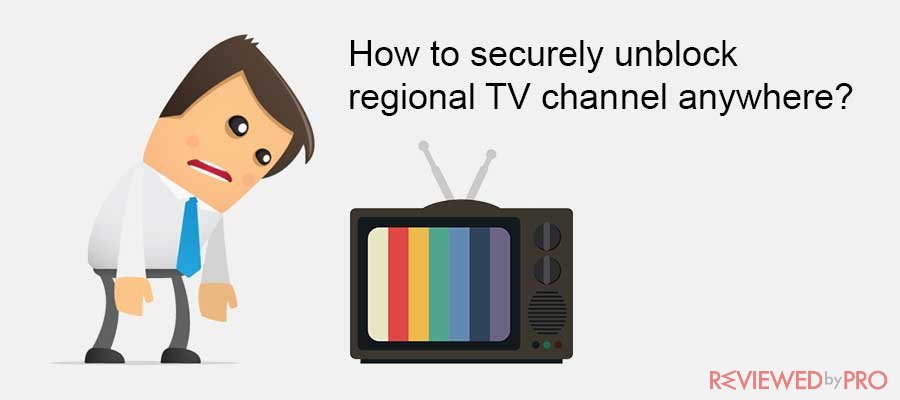
The internet is known as the World Wide Web, but that doesn’t mean you can get unlimited access to online video content. Many video content platforms and websites limit the content you can access in certain areas, which lock out users outside the allowed regions.
For example, even if you have an online daily schedule of New Zealand TV, you might not access the content if you’re outside the allowed region. It means that you must find a way to bypass the blocking system to get unrestricted access to your favorite content.
So, even if you live in New Zealand but travel abroad, you’ll lose access to your favorite programs and channels. The geo-blocks are annoying because you’re already a paid subscriber,
Before we find out how to bypass these frustrating geo-restrictions, let’s find out how they work.
How Region Restrictions Operate
Have you ever tried to access a TV channel only to get the following message: This video is unavailable in your region or country? If so, then you’ve come across a geo-blocking system. Geo-restrictions have ethical purposes, but they can prevent viewers from enjoying media they’ve even paid for.
So, how do geo-blocks work? Regional restrictions work by identifying your exact physical location based on your IP.
Geo-blocking is a practice of restricting access to online content based on your physical location. Usually, these restrictions apply to international borders and are commonly used by streaming services like Netflix, Hulu, Prime Video, etc.
These restrictions are imposed on streaming platforms to comply with the licensing deals among media properties, licensing agreements and copyright regulations, etc.
Region restrictions, also known as geo-blocks, use tracking and geolocation technology to identify your Internet Protocol address. Your IP address is linked to your country, and if a site’s content isn’t allowed in your region, geo-blocking is activated, blocking access to the site.
Your device’s IP address changes depending on your location and your Internet Service Provider (ISP). The IP address has geographic information used to identify your exact physical location. Depending on your IP address, certain geo-restriction apply.
Once a content streaming platform identifies your physical location, a filter is applied to specify the content you can access. For example, using your IP address to determine your location allows websites to block your access.
Why Content Providers Have Regional Restrictions
Certain content streaming services are only licensed to be shown in certain countries to adhere to licensing and copyright regulations. To avoid breaching these contracts, content distributors will impose regional restrictions to prevent users in certain locations from accessing the content.
For example, a content provider will impose region restrictions to block people from accessing certain content because their local partners air the content.
For example, Sky Sport may block out a game on their website or app in the city where the game is being played. They can do this, so a local TV channel doesn’t have to compete or encourage fans to buy tickets.
Also, even if you are a resident of New Zealand and have a SkyGo subscription, you’ll lose access to the platform every time you’re outside NZ. So it doesn’t matter whether you’re on a business trip or vacation. Your device’s IP address will prevent you from accessing the streaming platform.
How to Bypass Region Restrictions
As we have seen, content region restrictions have merit, but they can be frustrating. There are various ways of getting around geo-blocks to access content online.
You can use a VPN, smart DNS, a proxy server, or Tor Browser to get around these geo-blocks. Let’s break down each of these methods further:
VPN
Many people use VPNs to bypass content restrictions from popular streaming services and sports channels worldwide. A VPN can hide your current IP address and protects your connection to keep your online data private.
A VPN routes your data through a different server in another region/country and gives you an IP address from that country.
For example, NordVPN uses advanced VPN connections to hide your IP address and secure your data without throttling your connection. In addition, NordVPN uses multiple connections and VPN tunnels to give you a stable, faster connection.
Proxy Servers
Proxy servers are an intermediary between your connection and the server with the content you need to watch. The proxy server accesses the content servers on your behalf and passes the credentials to you.
Once you connect via a proxy server, you can watch any content you want, but the downside is the proxy servers won’t encrypt your data.
Tor Browser
A Tor Browser connects to the Tor Network, best defined as a series of nodes that cooperate to mask your connection. Your connection is passed between the nodes to add an extra layer of security until it gets to your destination site. The technology is known as Onion Routing and adds multiple layers of encryption.
Smart DNS
Smart DNS hides your IP address by replacing the Domain Name Server (DNS) provided by your ISP with one from a server in your preferred location. This process allows users to access geo-blocked content.
Conclusion
Media companies and streaming services have reasons for geo-blocking content. However, you can get around these geo-blocks to watch regional TV channels anywhere using a VPN, smart DNS, Tor Browser, or Proxy Servers. Also, check out how to access TV3 Ireland from anywhere.




